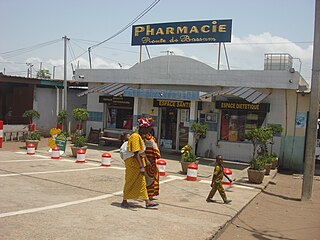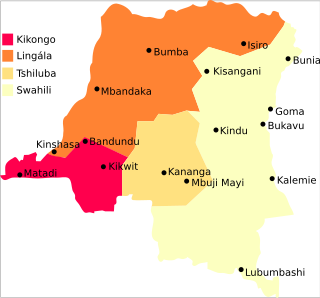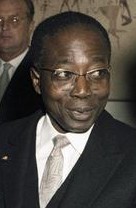
French is a Romance language of the Indo-European family. Like all other Romance languages, it descended from the Vulgar Latin of the Roman Empire. French evolved from Gallo-Romance, the Latin spoken in Gaul, and more specifically in Northern Gaul. Its closest relatives are the other langues d'oïl—languages historically spoken in northern France and in southern Belgium, which French (Francien) largely supplanted. French was also influenced by native Celtic languages of Northern Roman Gaul like Gallia Belgica and by the (Germanic) Frankish language of the post-Roman Frankish invaders. Today, owing to the French colonial empire, there are numerous French-based creole languages, most notably Haitian Creole. A French-speaking person or nation may be referred to as Francophone in both English and French.
An arrondissement is any of various administrative divisions of France, Belgium, Haiti, certain other Francophone countries, as well as the Netherlands.
The French language is spoken as a minority language in the United States. Roughly 1.18 million Americans over the age of five reported speaking the language at home in the federal 2020 American Community Survey, making French the seventh most spoken language in the country behind English, Spanish, Chinese, Tagalog, Vietnamese, and Arabic. Several varieties of French evolved in what is now the United States:
Négritude is a framework of critique and literary theory, mainly developed by francophone intellectuals, writers, and politicians in the African diaspora during the 1930s, aimed at raising and cultivating "black consciousness" across Africa and its diaspora. Négritude gathers writers such as sisters Paulette and Jeanne Nardal, Martinican poet Aimé Césaire, Abdoulaye Sadji, Léopold Sédar Senghor, and Léon Damas of French Guiana. Négritude intellectuals disavowed colonialism, racism and Eurocentrism. They promoted African culture within a framework of persistent Franco-African ties. The intellectuals employed Marxist political philosophy, in the black radical tradition. The writers drew heavily on a surrealist literary style, and some say they were also influenced somewhat by the Surrealist stylistics, and in their work often explored the experience of diasporic being, asserting one's self and identity, and ideas of home, home-going and belonging.

French America, sometimes called Franco-America, in contrast to Anglo-America, is the French-speaking community of people and their diaspora, notably those tracing back origins to New France, the early French colonization of the Americas. The Canadian province of Quebec is the centre of the community and is the point of origin of most of French America. It also includes communities in all provinces of Canada, Saint Pierre and Miquelon, Saint Martin, Saint Barthélemy, Martinique, Guadeloupe, Saint Lucia and Haiti in the Caribbean; French Guiana in South America. Also there are minorities of French speakers in part of the United States, the Dominican Republic, Dominica, Grenada and Trinidad and Tobago.

African French is the generic name of the varieties of the French language spoken by an estimated 320 million people in Africa in 2023 or 67% of the French-speaking population of the world spread across 34 countries and territories. This includes those who speak French as a first or second language in these 34 African countries and territories, but it does not include French speakers living in other African countries. Africa is thus the continent with the most French speakers in the world, and African French speakers now form a large and integral part of the Francophonie.

Varieties of the French language are spoken in France and around the world. The Francophones of France generally use Metropolitan French although some also use regional dialects or varieties such as Meridional French. In Europe outside France there are Belgian French, Swiss French, and in Italy Aostan French. In Canada, French is an official language along with English; the two main dialects of French in Canada are Canadian French and Acadian French. Standard French is also commonly grouped as Canadian French. In Lebanon, French was an official language until 1941 and the main dialect spoken there is Lebanese French or Levantine French. Levantine French was also spoken by Sephardic Jews in Salonica, Istanbul and Smyrna, by Armenians and Greek bourgeois in the urban centres of Asia Minor, by Syrian Catholics and Melkites in Aleppo and Beirut.
In linguistics, a sprachraum is a geographical region where a common first language, with dialect varieties, or group of languages is spoken.

The Democratic Republic of the Congo is a multilingual country where an estimated total of 242 languages are spoken. Ethnologue lists 215 living languages. The official language, since the colonial period, is French, one of the languages of Belgium. Four other languages, all of them Bantu based, have the status of national language: Kikongo-Kituba, Lingala, Swahili and Tshiluba.
This is a list of articles holding galleries of maps of present-day countries and dependencies. The list includes all countries listed in the List of countries, the French overseas departments, the Spanish and Portuguese overseas regions and inhabited overseas dependencies.
Haitian literature has been closely intertwined with the political life of Haiti. Haitian intellectuals turned successively or simultaneously to African traditions, France, Latin America, the UK, and the United States. At the same time, Haitian history has always been a rich source of inspiration for literature, with its heroes, its upheavals, its cruelties and its rites.
At the 2009 Jeux de la Francophonie, the athletics events were held at the Camille Chamoun Sports City Stadium from 1 to 6 October. A total of 46 track and field events were contested.
Antoine-Roger Bolamba, later Bolamba Lokolé J'ongungu, was a Congolese journalist, writer, and politician. He edited the monthly journal La Voix du Congolais from 1945 until 1959. He also served as Secretary of State for Information and Cultural Affairs of the Republic of the Congo in 1960 and then as Minister of Information and Tourism from 1963 until 1964.

The 2013 Jeux de la Francophonie, also known as VIIèmes Jeux de la Francophonie, were held in Nice, France, from September 6–15. This was the second edition of the games to be hosted in France and the first time that a country hosted the games twice.

The French language became an international language, the second international language alongside Latin, in the Middle Ages, "from the fourteenth century onwards". It was not by virtue of the power of the Kingdom of France: '"... until the end of the fifteenth century, the French of the chancellery spread as a political and literary language because the French court was the model of chivalric culture". Consequently, it was less as a centralising monarch than as a "gentle courtly prince" that the king unwittingly spread his language" and "the methods of expansion were not political"'. This status continued to grow into the 18th century, by which time French was the language of European diplomacy and international relations.

The Francophonie or Francophone world is the whole body of people and organisations around the world who use the French language regularly for private or public purposes. The term was coined by Onésime Reclus in 1880 and became important as part of the conceptual rethinking of cultures and geography in the late 20th century.

The 2017 Jeux de la Francophonie, also known as VIIIèmes Jeux de la Francophonie, informally known as Abidjan 2017, took place in Abidjan, Ivory Coast, from July 21–30. This was the first edition of the games to be hosted in Ivory Coast.
The Académie royale de langue et de littérature françaises de Belgique or ARLLFB is a Belgian institution which brings together personalities who, through their works, writings, lectures or speeches, have contributed most eminently to the illustration of the French language, either by studying its origins and its evolution, or by publishing works of imagination or criticism. It includes both Belgian and foreign members.









